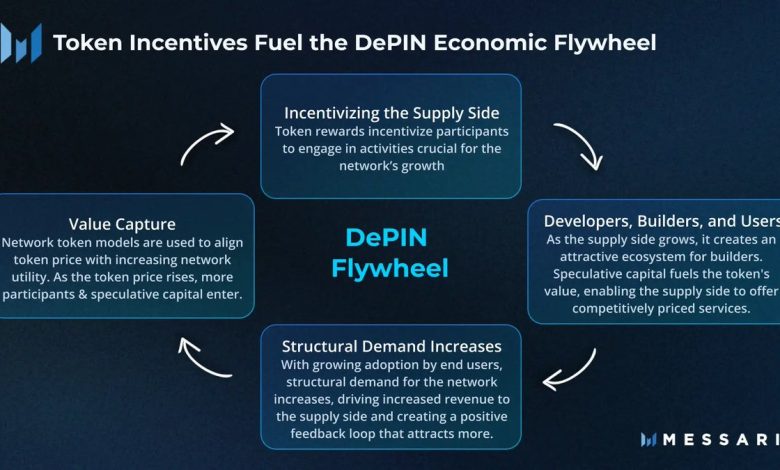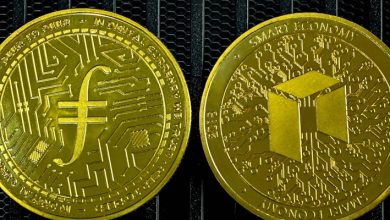The Role of Token Incentives and Rewards

- Understanding the concept of token incentives
- The psychology behind token rewards
- How token incentives drive user engagement
- The impact of token rewards on behavior
- Implementing effective token incentive programs
- Maximizing the benefits of token rewards
Understanding the concept of token incentives
Token incentives play a crucial role in motivating users to participate in various platforms and ecosystems. By offering rewards in the form of tokens, companies can encourage desired behaviors and actions from their users. These incentives can come in different forms, such as airdrops, staking rewards, or loyalty programs.
One of the key benefits of token incentives is that they create a win-win situation for both the platform and its users. Users are incentivized to engage with the platform, while the platform benefits from increased user activity and engagement. This can help drive growth and adoption, ultimately leading to a more vibrant and active community.
Furthermore, token incentives can also help align the interests of different stakeholders within a platform. By rewarding users for actions that benefit the overall ecosystem, companies can ensure that everyone is working towards a common goal. This can help foster a sense of community and collaboration among users.
Overall, understanding the concept of token incentives is essential for companies looking to leverage blockchain technology and decentralized networks. By implementing effective token incentive mechanisms, companies can drive user engagement, foster community growth, and create a more sustainable and thriving ecosystem.
The psychology behind token rewards
The psychology behind token rewards is rooted in the concept of behavioral reinforcement. When individuals receive tokens as rewards for their actions, it triggers a positive reinforcement mechanism in their brains. This positive reinforcement encourages them to repeat the behavior that led to the reward, thus increasing the likelihood of desired outcomes.
Token rewards also tap into the intrinsic motivation of individuals. By offering tokens as incentives, organizations can appeal to people’s innate desire for recognition and achievement. This can boost employee engagement and productivity as individuals strive to earn more tokens through their efforts.
Moreover, token rewards can help create a positive work culture by fostering a sense of community and collaboration among employees. When individuals work together to earn tokens, it promotes teamwork and camaraderie, leading to a more cohesive and supportive work environment.
How token incentives drive user engagement
Token incentives play a crucial role in driving user engagement within a platform. By offering users rewards in the form of tokens, companies can motivate users to actively participate and contribute to the platform. These incentives create a sense of value for users, encouraging them to continue engaging with the platform over time.
One of the key ways in which token incentives drive user engagement is by providing users with a tangible reward for their actions. When users are rewarded with tokens for completing tasks or achieving milestones, they are more likely to feel a sense of accomplishment and satisfaction. This positive reinforcement encourages users to continue engaging with the platform and striving to earn more tokens.
Additionally, token incentives can help create a sense of community and belonging among users. When users are able to earn tokens and rewards for their contributions, they are more likely to feel invested in the platform and connected to other users. This sense of community can lead to increased engagement as users seek to interact with others and earn more rewards.
The impact of token rewards on behavior
Token rewards have been shown to have a significant impact on behavior in various settings. When individuals are offered tokens as incentives for certain behaviors, they are more likely to engage in those behaviors. This is because tokens serve as a tangible representation of the reward that can be earned, making the incentive more concrete and appealing.
Research has demonstrated that token rewards can be particularly effective in shaping behavior when they are tied to specific, achievable goals. By clearly outlining what actions need to be taken to earn tokens, individuals are more motivated to work towards those goals. This can lead to increased productivity, improved performance, and a greater sense of accomplishment.
Furthermore, token rewards can help to reinforce positive behaviors over time. When individuals consistently receive tokens for engaging in desired behaviors, they are more likely to continue those behaviors in the future. This can create a cycle of positive reinforcement that encourages individuals to maintain their efforts and strive for continued improvement.
Implementing effective token incentive programs
Implementing effective **token incentive programs** is crucial for **organizations** looking to **motivate** their **users** and **drive** **engagement**. There are several **strategies** that can be **utilized** to **create** successful **token incentive programs**.
One **approach** is to **offer** **rewards** for **specific** **actions** taken by **users**, such as **completing** **tasks**, **referring** **friends**, or **making** **purchases**. By **rewarding** **users** for **desired** **behaviors**, **organizations** can **encourage** **repeat** **engagement** and **loyalty**.
Another **strategy** is to **implement** a **tiered** **reward** **system**, where **users** **earn** **increasing** **rewards** as they **achieve** **milestones** or **levels** of **activity**. This **can** **create** a **sense** of **progression** and **achievement** for **users**, **motivating** them to **continue** **participating**.
**Organizations** can also **leverage** **gamification** **techniques** to **make** **token** **incentive programs** more **engaging** and **fun** for **users**. By **incorporating** **elements** such as **leaderboards**, **badges**, and **challenges**, **organizations** can **appeal** to **users’** **competitive** **instincts** and **drive** **higher** **levels** of **engagement**.
In **summary**, **implementing** **effective** **token** **incentive programs** **requires** **careful** **planning** and **strategic** **execution**. By **offering** **rewards**, **implementing** **tiered** **systems**, and **leveraging** **gamification**, **organizations** can **create** **programs** that **motivate** **users** and **drive** **desired** **behaviors**.
Maximizing the benefits of token rewards
Maximizing the benefits of **token rewards** can be a key strategy for businesses looking to incentivize their customers or employees. By offering **token incentives** for desired behaviors, companies can drive engagement, loyalty, and productivity. To ensure that **token rewards** are effective, it is important to carefully plan and implement a **token reward** program that aligns with the goals of the organization.
One way to maximize the benefits of **token rewards** is to make them **tokenized** and easily redeemable. This can help increase the perceived value of the **tokens** and encourage recipients to engage with the program. Additionally, offering a variety of **token rewards** can appeal to a wider audience and cater to different preferences.
Another important aspect of maximizing the benefits of **token rewards** is to provide clear and transparent guidelines for earning and redeeming **tokens**. This can help build trust and credibility with participants, leading to increased engagement and participation in the **token reward** program.
Furthermore, regularly evaluating the effectiveness of the **token reward** program and making adjustments as needed can help ensure that it continues to drive the desired outcomes. By monitoring key metrics such as engagement rates, redemption rates, and overall satisfaction, businesses can fine-tune their **token reward** strategy for optimal results.




